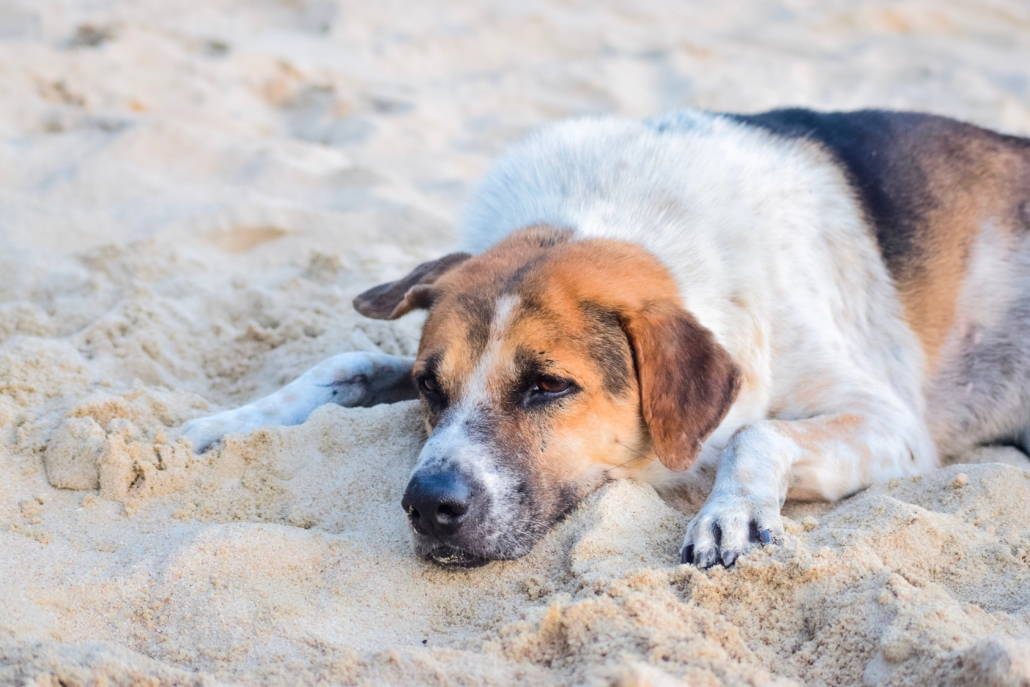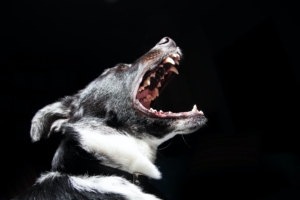CBD Oil for Dogs with Cancer
CBD Oil for Dogs with Cancer: Can It Help?
If you’re on this page, you likely know how scary it can be to get a cancer diagnosis for your pet. Cancer can kill. Sadly, it’s the leading cause of death in dogs that are ten years old and above. Admittedly, searching for advice and potential solutions can be overwhelming and stressful. First off, it’s most important to work with your veterinarian for your pet’s treatment. In addition, CBD oils for dogs with cancer could also have a place.
The first thing to understand, though, is that CBD oil alone isn’t a cure for cancer in dogs. There are no known natural cures for cancer. That doesn’t, however, mean CBD oil can’t help. There is evidence from research that CBD can support a cancer treatment plan for your dog to help improve their quality of life and potentially support treatment efficacy.
Treating Cancer in Dogs
Any serious disease like cancer, in dogs as well as humans, takes a multifaceted approach. There have been many recent medical advances in cancer treatment, and experts have found that cancer is treatable in many cases—especially when one cancer is found early and the proper treatment is provided.
There can be numerous signs that your dog needs to visit a veterinarian to assess the possibility of cancer. Because early treatment can be so beneficial, some signs to watch for include:
- Shortness of breath or breathing difficulties both after exercise and at rest
- Increased snoring
- Raised bumps, open wounds, or other skin or just beneath the skin issues
- Odd smelling breath or coat
- Decreased appetite, including refusing favorite treats
- Sleeping more often or for longer
- Low energy levels
- Disinterest in activities or surroundings
- Elimination issues, such as not going or going at unusual times or places
- Clear signs of pain or discomfort
Cancer treatments can involve nutrition, rest, movement, and most importantly, working with an experienced veterinarian or veterinary oncologist to design an appropriate treatment protocol for your dog and their condition. For instance, different types of cancer, such as bone, hemangiosarcoma (cancer of the blood vessels), lymphoma, mast cell tumors, melanoma (skin cancer), and mammary cancer, can require different types of treatments.
Treatment protocols often include:
- Surgery or amputation to remove the cancerous tumors
- Chemotherapy and/or radiation to help shrink the tumors
- Drugs and supplementation to help address side effects
CBD for Cancer in Dogs
Again, there is no natural cure for cancer that we know of. But CBD may be part of a multifaced treatment approach as it may positively affect the endocannabinoid system to help:
- Support the decrease of tumor size or reduction of cancer cells. There is human cell (in vitro), rather than dog, research showing this possible benefit on:
- Increase the efficacy of other therapy approaches shown to reduce tumor cells, which may allow you to lower the dosage and possibly decrease side effects.
- Increase survivability of chemotherapy (as shown in laboratory mice) to promote a more positive outcome.
- Decrease cancer cell proliferation and increase autophagy (or breakdown) of cancer cells (shown in in vitro research).
CBD Oil Cancer Treatment
While CBD oil cancer treatment isn’t a thing, there are other ways CBD may help support your pet from cancer symptoms and side effects, including:
- Pain management
- Excess inflammation
- Decreased risk of side effects of prescription pain medications, which can include GI issues, liver and kidney failure, increased tolerance and risk of overdose and death
- Decreased stress, anxiety, or agitation from treatment discomfort
- Decreased seizures
The immune system and the endocannabinoid system are also closely linked, and CBD oil may help support a healthier immune system. For instance, CBD oil has been shown to fight free radicals to decrease oxidative stress.
Other ways CBD for cancer in dogs may help include:
- Improved wake-sleep cycles and REM, which is needed for the body to recover, though research has been mixed.
- Improved appetite, potentially by easing nausea.
- Promoting gut health, which is important for an effective immune system.
In addition, CBD has been shown to have a higher safety profile than many other drugs (including those available over the counter) with fewer and less serious side effects. That said, CBD can make dogs sleepy or lethargic if given too much. So, make sure you follow the usage instructions for your dog and their weight and work with your veterinarian if you have questions.
Talk with Your Veterinarian About CBD Oil for Dogs with Cancer
Your veterinarian has experience with cancer treatments and multifaceted approaches to help improve recovery and make your dog more comfortable during this difficult time. If you are using CBD oil, make sure you discuss it with your vet. CBD oil may interact positively with the medications. But it could also interfere with medications and treatments. For instance, CBD may make drugs more potent, so your dog needs a smaller dosage. You may also want to space out CBD oil from other medications so they don’t interfere with each other’s actions.
In other words, it’s very important that you’re in communication about everything you’re doing for your beloved pet, so you can work in coordination with all your vet is doing.
Many vets are excited about the potential benefits of CBD. Others, however, can be more wary. If your veterinarian isn’t on the same page with you on treatment options, you may want to reach out to one with more experience with holistic treatments to consult.
Again, CBD oil cannot cure cancer in dogs, humans, or other animals. No natural treatments have been shown to have this effect. However, there are additional solutions that may help with your dog’s recovery and to help them feel better during this challenging time. That includes quality nutrition, supplementation, and potentially research-backed CBD oil.
Ready to explore more CBD distillate uses for pets and how the best CBD for pets—ABSC Organics—can help your pet live a more vibrant, healthy life? Get started here.
Related Information:




